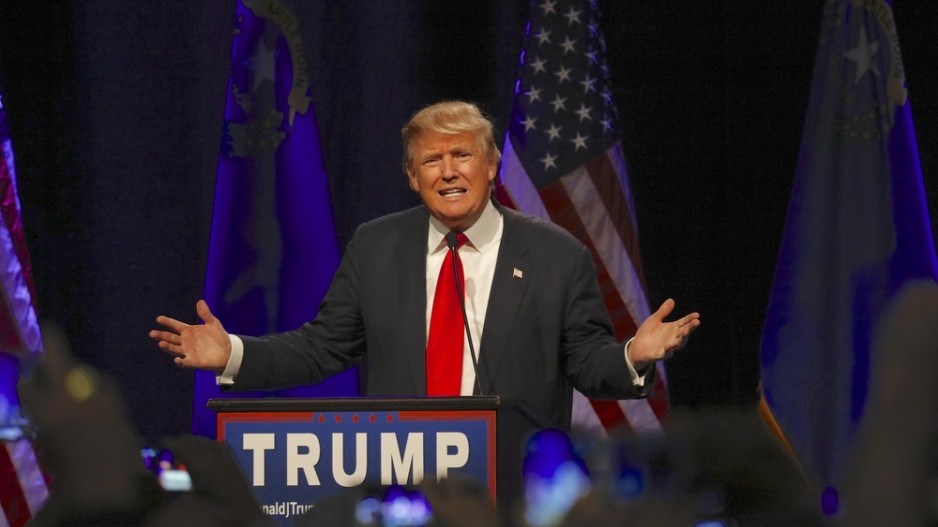This week marks Donald Trump’s second anniversary as president of the United States. The past two years have brought their share of controversies, including the special counsel investigation on Russian interference, the negotiations toward a new free-trade agreement in North America and the Republican party losing its majority in the House of Representatives, following a severe setback in last November’s mid-term ballot.
Research Co. had the opportunity to ask Americans about their current head of state this month, as well as to review two topics that have dominated talk around the District of Columbia for the past few weeks: border security and the partial government shutdown.
Across the United States, 38% of Americans approve of Trump’s performance as president while a majority (58%) disapprove. Among self-described Republicans, Trump’s numbers climb to a more-than-respectable 64%, with just one in five (20%) disapproving of the way he has handled his duties.
It is not a surprise to see that only 6% of Americans who identify with the Democratic party believe Trump has done a good job as president, but independents – who were not entirely enamoured by Hillary Clinton’s campaign in 2016 – are starting to become more critical of Trump. In this demographic, the president’s approval rating stands at 36% and disapproval reaches 61%.
On January 8, speaking at the same venue where his predecessors addressed the country in times of doubt, tragedy and war, Trump pleaded his case to build a wall along the country’s southern border. The appeal did not resonate with a majority of Americans. In our survey, 54% disagree with Trump’s assessment of the current situation at the U.S.-Mexico border as “a crisis,” while 43% concur with their head of state. In spite of these countrywide numbers, Republicans are solidly behind Trump: 79% say what is transpiring on the southern border is “a crisis.”
When asked about their views on Trump’s proposal to build a wall along the entire U.S.--Mexico border, 55% of Americans disagree with the president and 40% agree with him. The political polarization of the country is unmistakable in this question: only 7% of Democrats side with Trump compared with 76% of Republicans.
Trump had also suggested that he might declare a “national emergency” over the current situation at the southern border. Almost three in five Americans (59%) believe this course of action would “definitely” or “probably” be unreasonable. But among Republicans, the proportion drops to a paltry 20%.
Finally, we asked Americans to state who is more responsible for the recent partial shutdown of the federal government. A third of respondents (33%) accuse the Democrats in Congress, while a majority (57%) say the president is primarily to blame. Once again, Republicans are standing by their former and future nominee: only 20% think this is, as the Democrats have branded it, a “Trump shutdown.”
There is much to ponder when analyzing the findings of this survey of Americans. For any other White House dweller seeking re-election, an approval rating lower than 40% after two years in office would amount to a disastrous showing. But Trump is clearly counting on the unambiguous fervour that his base continues to bestow upon him, regardless of his actions, comments or tweets.
The Republican base is decidedly in favour of the way Trump is doing his job, and their perceptions of the president do not waver hugely from issue to issue. More than seven in 10 Republicans approve of Trump’s performance, agree with his assessment that the situation on the southern border is a crisis, want to build the wall and think it would be justified for the president to invoke a national emergency if he wants to.
Whoever becomes the Democratic nominee in 2020 will have a difficult time trying to move these diehard Republican supporters away from Trump. Independents are a different breed: they have fluctuated wildly in the past as presidential campaigns have progressed. In 2012, Mitt Romney overtook Barack Obama for a brief period as the first choice for registered independents in a tracking survey I conducted for a now defunct company. Obama ultimately rekindled with these voters and earned a second term in office.
As we move closer to the next presidential election in the United States, the behaviour of independents may define Trump’s political future. At this point, Democrats are united in their disdain for the president, and Republicans are overly supportive of his decisions – even ones he has only hinted at possibly taking. Most independents are currently not amused by the president’s antics on issues like the border and the government shutdown. If these non-partisan voters find a suitable candidate on the Democratic ticket in November 2020, Trump may well become the 12th man to serve as president for only one term. •
Mario Canseco is the president of Research Co.




